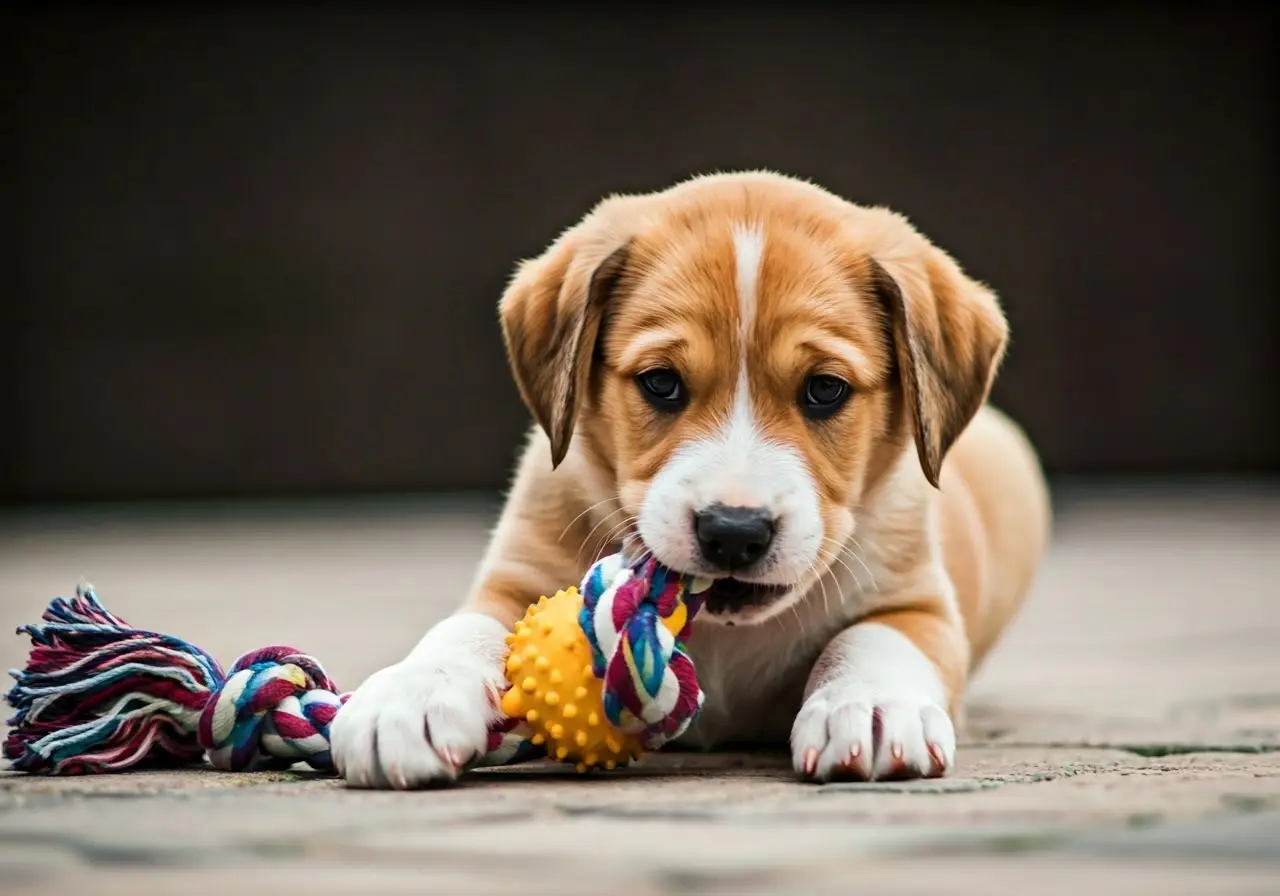Blogs - K9 Obedience LLC: Your Guide to Dog Training and Behavior

Understanding and Correcting Puppy Biting Habits
Puppy biting is a common and natural behavior, but it's one that can become problematic if not addressed early on. Whether you're a new puppy parent or a seasoned dog owner, understanding why puppies bite and how to correct this habit is essential for a harmonious home. In this guide, we'll explore the reasons behind puppy biting and provide practical solutions to help your furry friend develop good habits.

Why Do Puppies Bite?
Understanding why puppies bite is key to guiding them toward healthier behaviors. Puppies bite for various reasons—teething, playfulness, and exploring their environment. Recognizing these motivations allows for a tailored approach to address this natural behavior. For instance, during the teething phase, puppies often chew to soothe sore gums. This behavior often peaks between 12–16 weeks when adult teeth start coming in, and they may target anything within reach—fingers, furniture, shoes—as they explore.
Biting is also a way for puppies to interact with the world and learn boundaries. They gain sensory information through chewing, developing bite pressure control and understanding what’s acceptable. Socially, puppies learn bite inhibition during play with their littermates. If one puppy bites too hard, play stops, teaching it to be gentler. This feedback is essential for learning social cues and boundaries.
Biting can also be a reaction to overstimulation or extra energy. A puppy might bite when they’re bored or seeking attention, similar to how a toddler might act out when tired. Recognizing these signs—such as body tension or a defensive posture—can help manage biting and maintain a relaxed home environment.
The Importance of Early Training
Training a puppy early is essential for curbing biting and setting the stage for a positive, respectful relationship. Early training helps puppies learn basic communication and keeps minor issues from developing into more significant behavioral challenges. Teaching basic commands like “stay” or “leave it” creates a secure, predictable environment, particularly helpful in busy settings like parks or neighborhoods. A well-trained puppy is more adaptable and comfortable around new people, environments, and other dogs, contributing to a balanced, confident adult dog.
For new owners, prioritizing training early on helps establish a more enjoyable relationship with their puppy. Simple obedience skills make daily life smoother and give the puppy a sense of structure and understanding, reducing the chance of anxiety or aggression. A strong foundation in training during these early months prepares your puppy for a lifetime of positive interactions.
Safe and Effective Techniques to Stop Puppy Biting
Safe, gentle methods can effectively curb biting by using redirection and positive reinforcement. Instead of discouraging biting with negative reactions, encourage desirable behavior. If your puppy nips at your hand, offer a chew toy instead. Consistently redirecting their biting toward toys teaches them where that energy belongs and what’s acceptable to chew.
Identifying your puppy’s biting triggers can help refine your technique. If overstimulation is the cause, allow your puppy some quiet time to calm down. Engaging them in activities like fetch or scent games can manage their energy, directing it away from biting. Consistency is crucial. Routines help your puppy understand daily expectations, keeping them engaged and reducing the likelihood of biting out of boredom or excess energy. By using treats, toys, or praise, you reinforce positive behaviors and strengthen your bond.
Avoiding Common Mistakes
Correcting biting requires avoiding common mistakes that can inadvertently reinforce the behavior. Misinterpreting puppy behavior can lead to frustration, and punishment only heightens anxiety and resistance, making biting worse. Instead of reacting with raised voices or physical restraint, focus on redirecting behavior positively. Rough play, such as wrestling or letting a puppy chase fingers, can also encourage biting as part of a game. Instead, keep toys available to show them how to play appropriately.
Stay calm if biting continues, as puppies are sensitive to your emotions. Rather than shouting, simply remove yourself to show that biting ends the fun. Regular training sessions with gentle redirection build a trusting environment where your puppy learns through positive associations.
When to Seek Professional Help
Most biting behaviors can be managed at home, but in some cases, professional help may be beneficial. If biting behavior becomes excessive or aggressive—such as causing bruising or accompanied by growling and tension—it may indicate a deeper behavioral issue. Professional trainers or behaviorists can provide specialized guidance, evaluating specific challenges and offering solutions tailored to your puppy’s needs. This intervention can include private sessions or group classes focused on socialization and controlled exposure to different environments.
Professional help ensures your puppy receives personalized attention in a safe setting, improving their behavior and your bond. Investing in training with a knowledgeable expert enhances your puppy’s well-being and your shared quality of life.
Building a Trusting Relationship with Your Puppy
Correcting biting behavior is just one part of nurturing a strong, trusting bond with your puppy. By understanding why they bite and using positive training techniques, you’re guiding them to become a well-behaved family member. Remember, your journey with your puppy is about more than addressing challenges—it’s about building a relationship filled with mutual trust, respect, and love.
K9 Obedience LLC, Rochester NY
All Rights Reserved


Facebook